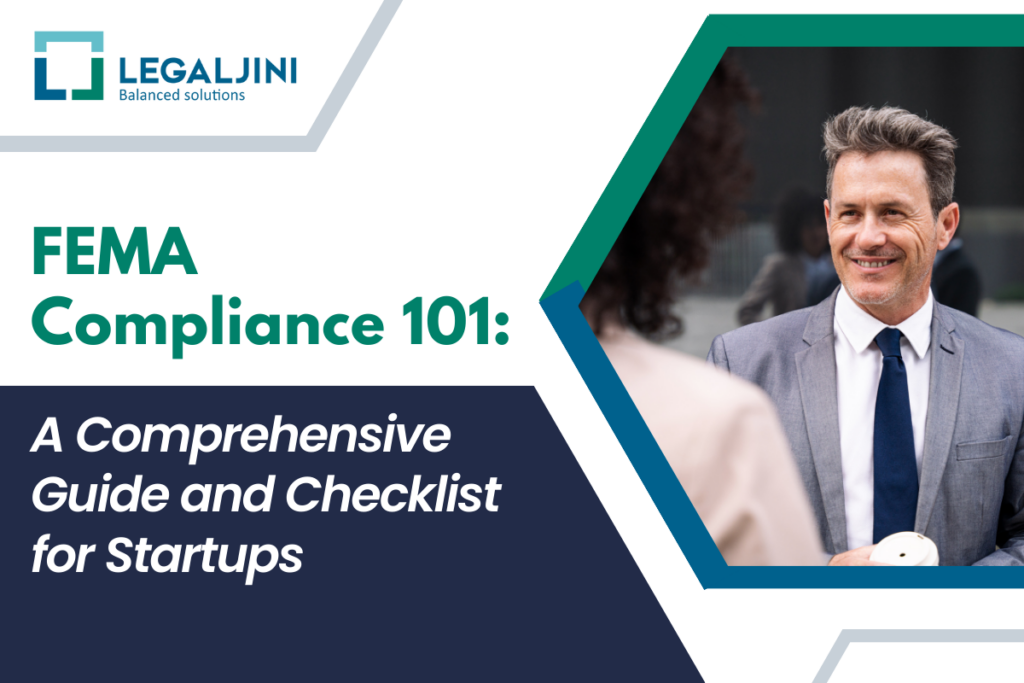
In the ever-evolving realm of startups, compliance with regulatory frameworks stands as a linchpin for sustained growth and operational stability. Among these, compliance with the Foreign Exchange Management Act (FEMA) emerges as a critical imperative.
In this blog, we’ll unravel the essence of FEMA compliance, its significance, advantages, and most importantly, provide a detailed FEMA compliance checklist tailored for startups. Let’s embark on a journey to understand and implement the compliance measures necessary for the seamless operation of startups in the Indian business ecosystem.
Understanding FEMA Compliance: A Prelude
What is FEMA Compliance?
Foreign Exchange Management Act (FEMA) compliance involves adhering to the regulatory framework laid out by the Reserve Bank of India (RBI) concerning foreign exchange transactions. It governs various aspects, including capital account transactions, current account transactions, and more. From intricacies related to capital account transactions to overseeing the nuances of current account transactions, FEMA serves as the regulatory lodestar for individuals, businesses, and financial entities engaged in international financial dealings.
FEMA compliance isn’t confined to a singular facet but spans a multitude of financial dimensions. It encompasses adherence to regulations governing the flow of capital, management of external commercial borrowings, and meticulous oversight of foreign exchange transactions.
Whether it’s facilitating investments abroad or regulating transactions in the current account, FEMA sets the regulatory stage for seamless and lawful financial interactions within the global arena.
Ensuring FEMA compliance involves not only understanding the regulatory framework but also actively participating in compliance mechanisms. From appointing certified FEMA Compliance Advisors to meticulous documentation and reporting, businesses and individuals must engage in a proactive approach to meet regulatory requirements.
This includes reporting to the RBI promptly, maintaining accurate records of transactions, and seeking expert advice to navigate the intricacies of FEMA regulations.
Why is FEMA Compliance Required?
- Legal Mandate: FEMA compliance is a legal obligation, and non-compliance can result in severe penalties.
- Facilitation of Transactions: It facilitates smooth cross-border transactions and investments.
- Ensuring Financial Stability: FEMA regulations contribute to the overall financial stability of the country.
Advantages of FEMA Compliance
- Global Credibility: Compliance enhances a startup’s credibility in the global market.
- Access to Funding: FEMA compliance opens doors to foreign investments and funding.
- Risk Mitigation: It mitigates the risks associated with fluctuating exchange rates
FEMA Compliance Checklist for Startups-
Checklist for FDI Compliance under the Automatic Route following FEMA:
- Eligibility Assessment: Startups should use Form FC-GPR (Foreign Currency-Gross Provisional Return) for reporting transactions related to the issue of capital instruments to non-residents. Form FC-GPR must be submitted to the designated Authorized Dealer bank within 30 days from the date of allotment of shares.
- Bonus/Right Issue Consideration: Companies must adhere to the pricing guidelines specified by the Reserve Bank of India (RBI) for the issue of bonus/right shares to non-residents. Form FC-GPR is also applicable for reporting such transactions.
- Shares Issuance Compliance: Compliance with FEMA guidelines involves the filing of Form FC-GPR for the issue of shares to non-residents. Companies need to ensure adherence to pricing norms and the issuance of shares in line with pre-operative expenses.
- Overall Overseas Investment: Startups need to utilize Form ODI (Overseas Direct Investment) for reporting overall overseas investments. The designated Authorized Dealer bank must receive this form within 30 days of the investment.
FEMA Compliance Checklist Relating To FDI Under Government Approval Route:
- Share Transactions Scrutiny: Transactions requiring government approval should be reported using Form FC-TRS (Foreign Currency-Transfer of Shares). The company must submit this form to the designated AD bank within 60 days from the date of the transaction.
- FIBB Consent: Seeking prior FIBB (Foreign Investment Facilitation Board) consent involves applying the FIFP (Foreign Investment Facilitation Portal) for proposed FDI exceeding sector-specific threshold limits.
FEMA Compliance Checklist for the Establishment of a Branch/Project Office/Liaison in India:
- Business Presence Evaluation: Startups establishing a business place in India must adhere to the regulatory framework under the Companies Act, 2013, and FEMA. Filing Form FNC (Form for Application for Establishment of a Branch Office/Liaison Office/Project Office) is required.
- Legal Compliance Assessment: Compliance with FEMA regulations involves filing Form FNC for establishing a branch/project office/liaison in India. Additionally, compliance with the Companies Act, 2013, requires adherence to related provisions.
FEMA Compliance Checklist for Direct Investment Outside India Under Automatic Route:
- Investment Approval Verification: Startups must use Form ODI for reporting investment via swapping of shares, ensuring prior government approval. The form needs to be submitted to the designated AD bank within 30 days from the date of the transaction.
- AIFs/Domestic Venture Capital Funds Scrutiny: For investments by AIFs/Domestic Venture Capital Funds, startups should adhere to SEBI regulations and report transactions using Form ODI. The Annual Performance Report and remittance reporting also require compliance.
- Obligations Fulfillment: Annual Performance Report and remittance reporting obligations need to be met through Form APR (Annual Performance Report) and Form ODI, respectively.
Important Features of the FEMA Compliance Checklist:
- Applicability to Indian Nationals: FEMA’s exclusion of Indian nationals residing abroad is determined using the Income Tax Act of 1961. The number of days spent in India is crucial for establishing residency.
- Government’s Regulatory Authority: FEMA grants the government authority to impose restrictions on payments, with oversight on payments received from and made to individuals outside India. Additionally, foreign security arrangements fall under FEMA’s regulatory purview.
Conclusion
This detailed FEMA Compliance Checklist equips startups with the technical information and requisite forms to navigate FDI regulations seamlessly. Compliance with these guidelines, backed by accurate documentation and timely submissions, ensures startups operate securely within the regulatory framework. Understanding the nuances of each compliance step is paramount for startups engaging in international financial transactions.

